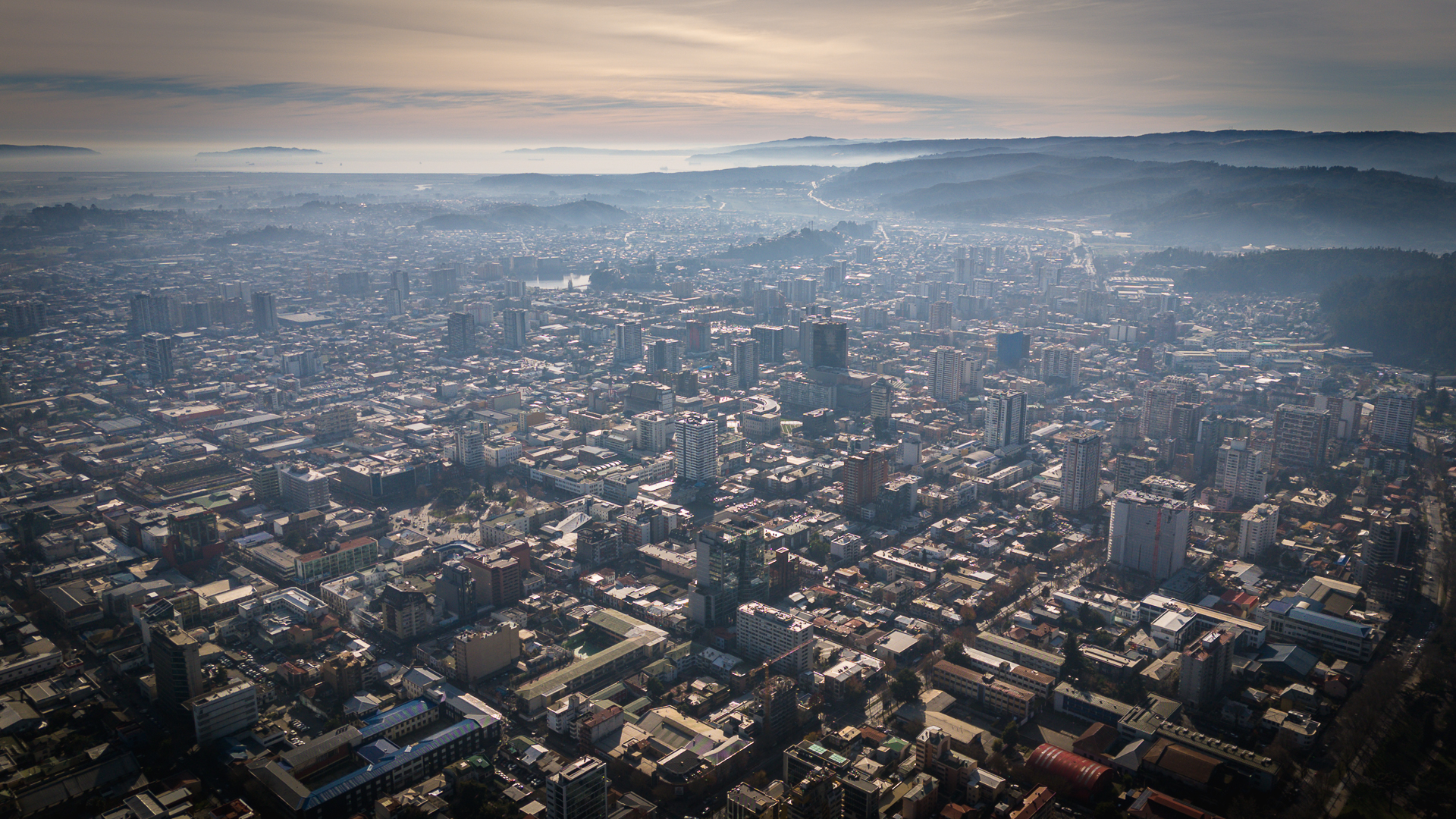Analysis of urban challenges in Greater Concepción, knowledge and experience sharing from various cities around the world, visits by international researchers to different neighborhoods of the Penquista capital, and the transformation of the Biobío Theater into a hub for science, innovation, and city-applicable technology will all be part of the Summit Cities in Transition, an event organized by City Lab Biobío.
The governor of the Biobío Region, Sergio Giacaman, provided details about the Summit alongside the principal director of City Lab Biobío, Fernando Pérez, the president of the Chilean Chamber of Construction in Concepción, Jorge Coloma, and representatives from Teatro Biobío. Joining them was Luis Alonso, a researcher from MIT’s City Science laboratory, who traveled to Chile for the event’s preparations.
During the event, it was announced that Cities in Transition will take place from Tuesday, October 7, to Thursday, October 9. Around 150 researchers and professionals specializing in urban matters, data technology, and scientific outreach are expected to arrive in Concepción from Hamburg (Germany), Gipuzkoa (Spain), Andorra, Be’er Sheva (Israel), Guadalajara (Mexico), Cambridge (United States), Toronto (Canada), Taipei (Taiwan), and Shanghai (China). For the first time, this flagship summit of urban laboratories from the MIT network will be hosted in a city located in the Southern Hemisphere.

This annual event of the MIT City Science network is considered one of the world’s key events in city science, technology, and urbanism. For Greater Concepción, it will serve as a stage where, over the course of a week, researchers and scientists will explore various solutions to the major challenges faced by the world’s leading cities.

“The idea is to bring together experts from around the world in technology, artificial intelligence, and urban planning for a gathering where we can discuss infrastructure, commerce, real estate, social housing, and how to integrate communities into a planning process that truly considers the concerns of those of us who live here. This will allow us to develop a more balanced city for the future.”
Jorge Coloma, CChC Concepción president

“Having Biobío as the host of a scientific event of this magnitude is a great opportunity for the region. This event will allow us to learn from nine globally recognized cities while also involving them in the search for solutions for our own region. We want Biobío to move forward with a future-oriented vision, which means looking at the best international experiences and incorporating that knowledge into our planning. It’s not just about doing things well, but about doing them even better.”
Sergio Giacaman, Biobío Regional Governor

“What we aim to do with this Summit is to start addressing challenges that matter to the region. MIT will connect its entire network with the challenges at the regional level—we want to learn together and promote collaboration between people who don’t usually work together, because that is what innovation is about. Additionally, this will be an open event for the public, which means we must carefully consider the content, ensuring it’s not just scientists talking about science but making it accessible to the community at different levels.”
Luis Alonso, research scientist MIT City Science
City Lab Biobío exists in Greater Concepción thanks to the support and funding of the Biobío Regional Government and the Chilean Chamber of Construction, with its operations managed by Corporación Ciudades. It benefits from strategic support from the universities of Concepción, Bío-Bío, and del Desarrollo, along with partnerships with businesses and public entities. Its main objective is to model scenarios to anticipate the impact of urban planning decisions, using data science as a tool for city planning. To achieve this, it leverages MIT’s technology and knowledge transfer.
“One of our goals is to involve the community in urban issues because, obviously, everything related to urban planning impacts the quality of life of those who live in the city. We will make our best efforts to explain what data science is and how it allows us to anticipate scenarios to strengthen the decision-making process of those who influence the different territories,” reflected Fernando Pérez, the principal director of City Lab Biobío.



